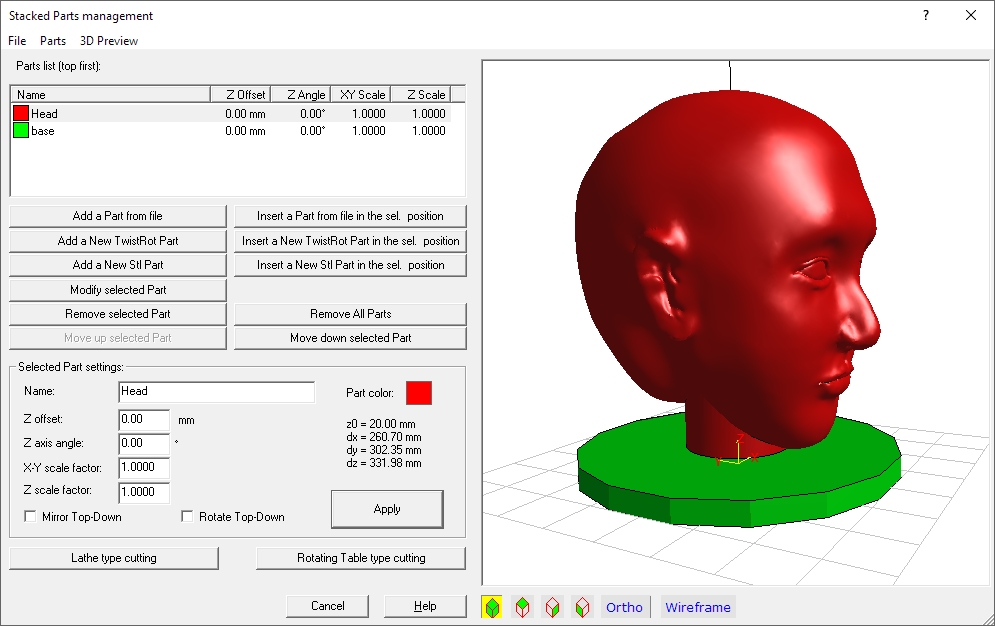|
||||
|
Stacked parts
|
||||
Stacked parts
You can get this dialog box pressing the 'Cut Stacked parts' link located in the Startup dialog
You can use this if you own a Cnc machine with an added rotary axis. If you press ' Cut Stacked parts' link the following dialog will appear:

Stacked parts are a set of one or more
'TwistRot Parts' and/or 'Stl
Parts' stacked on the Z (vertical) axis.
In the most common case you will cut just one single part, but you can create a
complex set of stacked parts and cut them all in one shot.
The cut will be performed cutting one part at a time, from the first to
the last of from the last to the first.
You can cut them using a Rotary table (vertical rotation axis) or a Lathe
type (horizontal rotation axis) cnc foam cutting machine.
In the left side of the dialog you can see the controls to setup your Stacked
parts.
In the right side the 3D preview of the Stacked parts.
Now we will explain in deep every single part of the dialog.
Left side: the parameters and commands
Parts list (top first):
You see here the list of the Stacked parts. The first in the list is the topmost. You can also see some applied parameters and the part colour.
Command
Buttons:
You can see here the command button to add, modify, delete or
move up/down the selected part.
By default the part will be stacked with 0.0 offset, so that the parts are
touching each other. Of course you can modify this setting, see the below
controls.
Selected Part settings:
When you select a part in the list, you can see here
the related parameters and settings.
You can change them, then press the Apply button.
Other command Buttons:
Right side: the 3D preview
You can see here the 3D Preview of the Stacked parts.
Consider also that you can customize it by the '3D Preview' menu.
The optional grid can be customized by the '3D Preview' menu.
You can make measurements on the 3D preview selecting the Orthogonal view and
some predefined Top-Side-Front view.
The menu
Using the supplied menu you can control all the advanced settings.
File menu:
3D Preview menu:
I suggest also to take a look at this page, to better understand some important concepts of devFoam: DevFoam FAQ and important concepts